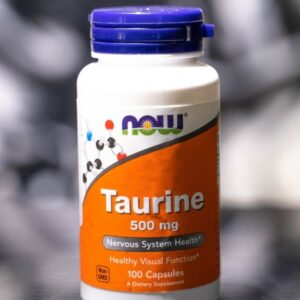Introduction:
Dried fruits have been consumed for centuries and are known for their sweet and concentrated flavors. They are popular snacks and ingredients in various culinary dishes. However, there is often debate about whether dried fruits are a healthy choice due to their higher sugar content and potential nutrient loss during the drying process. In this comprehensive guide, we will delve into the pros and cons of dried fruits to help you make informed decisions about incorporating them into your diet.
Nutritional Composition:
Dried fruits are rich in essential nutrients and provide a concentrated source of vitamins, minerals, and dietary fiber. They contain beneficial antioxidants, such as polyphenols, which contribute to overall health. Dried fruits also offer small amounts of protein and healthy fats. However, it is important to note that the drying process can affect the nutrient content, particularly heat-sensitive vitamins like vitamin C.
Fiber Content:
One of the key advantages of dried fruits is their high fiber content. Fiber aids digestion, promotes satiety, and helps regulate blood sugar levels. Dried fruits are particularly rich in insoluble fiber, which adds bulk to the diet and aids in preventing constipation. However, some individuals with digestive issues, such as irritable bowel syndrome (IBS), may find dried fruits exacerbate their symptoms due to the concentrated fiber content.
Sugar Content:
Dried fruits are known for their natural sweetness, but the drying process removes water, making the sugar content more concentrated. This can lead to concerns about excessive sugar consumption. While dried fruits contain natural sugars, they also provide beneficial fiber and a wide range of nutrients. Moderation is key when consuming dried fruits, especially for individuals with diabetes or those following a low-sugar diet.
Caloric Density:
Due to their low water content, dried fruits are more calorically dense than fresh fruits. This can be both advantageous and problematic depending on individual dietary goals. For individuals seeking to maintain or gain weight, dried fruits can provide a convenient and nutritious source of calories. However, those aiming to lose weight or limit caloric intake should be mindful of portion sizes to avoid excess energy consumption.
Micronutrient Content:
Dried fruits are a valuable source of essential vitamins and minerals. They are particularly high in potassium, which supports heart health and helps maintain healthy blood pressure levels. Additionally, dried fruits often contain significant amounts of iron, magnesium, and vitamin K. However, it’s important to note that certain heat-sensitive vitamins may be partially lost during the drying process.
Antioxidant Power:
Dried fruits, especially darker varieties like raisins and prunes, are rich in antioxidants. Antioxidants help protect the body against oxidative stress and reduce the risk of chronic diseases. The polyphenols found in dried fruits have been associated with various health benefits, including improved heart health, brain function, and reduced inflammation.
Considerations for Specific Diets:
a. Vegan and Vegetarian Diets: Dried fruits can serve as a valuable source of essential nutrients, such as iron and calcium, for individuals following plant-based diets. They provide an alternative to animal-based foods and offer a wide range of flavors for culinary experimentation.
b. Gluten-Free Diets: Dried fruits are naturally gluten-free and can be enjoyed by individuals with gluten intolerance or celiac disease as a safe and healthy snack option.
c. Low-Carb and Keto Diets: Due to their higher sugar and carbohydrate content, dried fruits are generally not recommended for individuals following low-carb or ketogenic diets. Alternative low-carb snacks may be more suitable for these dietary approaches.
Conclusion:
Dried fruits offer a convenient and nutritious snack option with a long shelf life. While they are high in natural sugars and more calorically dense than fresh fruits, they provide valuable fiber, vitamins, minerals, and antioxidants. When consumed in moderation and as part of a balanced diet, dried fruits can contribute to overall health and well-being. As with any food, it is important to consider individual dietary needs and goals when incorporating dried fruits into your eating habits.
- Chill Out with Slushie Bar Salts: The Ultimate Guide to Cool Vape Flavors - February 27, 2024
- Dinamex Marijuana Strain - September 9, 2023
- Dried Fruit: Good or Bad? - July 8, 2023










